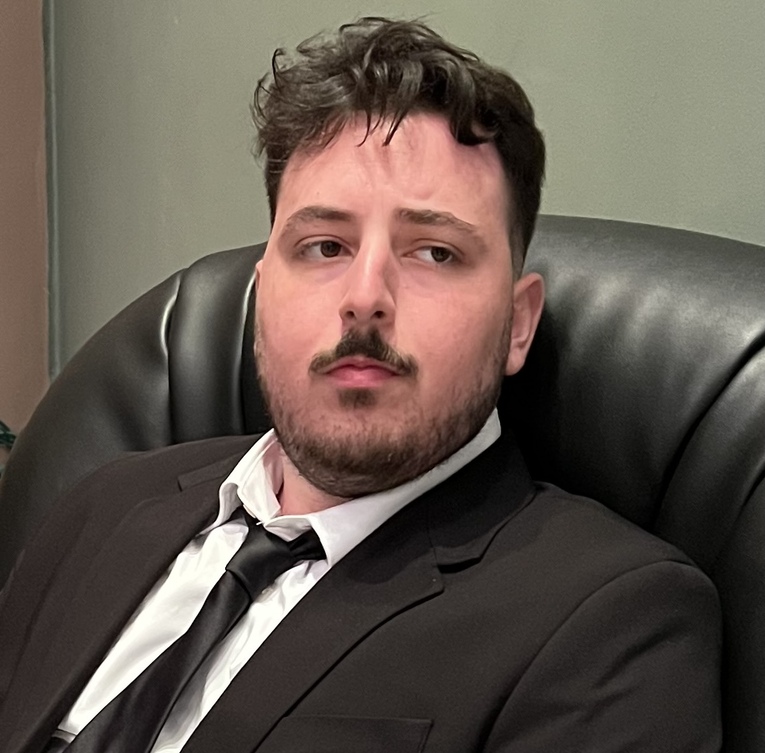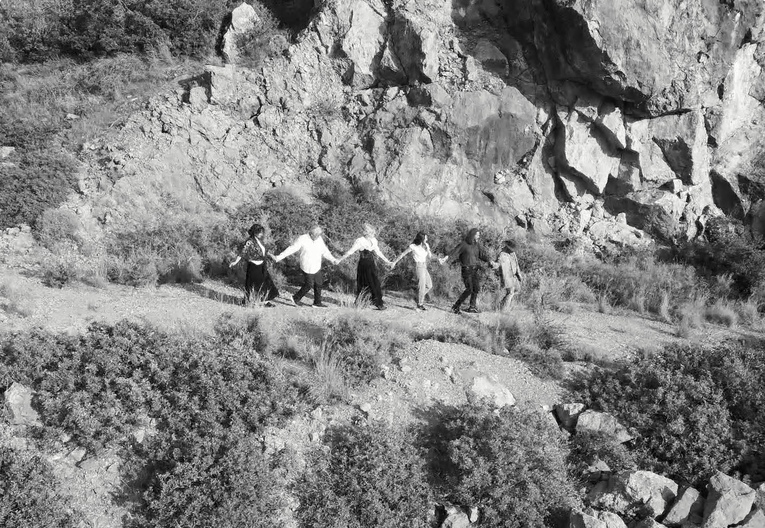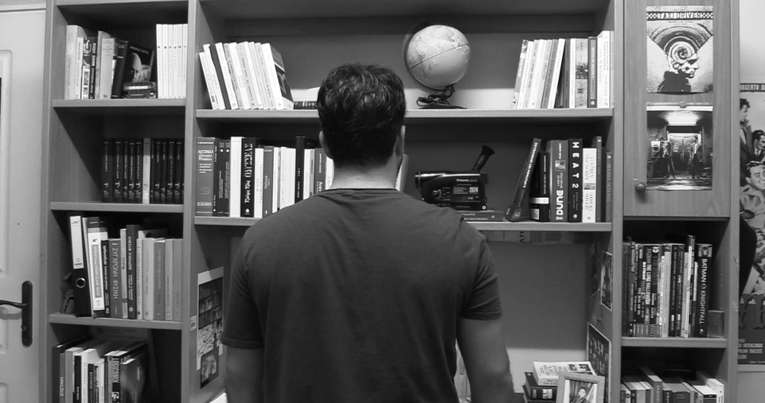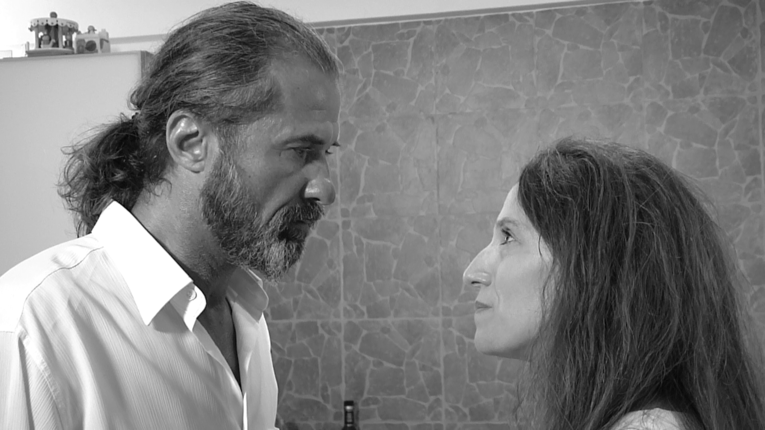Interview with Bill Vryonis, writer and director of "ARCHETYPE"
Not long ago, the Culture of Balkans column featured an article about the film, ARCHETYPE created by 25-year-old Bill Vryonis. Today, we’re excited to speak with the man himself and learn more about his journey and his fascinating project.

CULTURE OF BALKANS: Bill, you’ve studied Physics and you are now preparing for your Master’s in Medical Physics. How did cinema come into your life?
BILL VRYONIS: If we look at it from a quantum mechanics point of view (laughs), we’ll see that everything has an explanation and a cause that justifies what’s happening around us. In this case, the equation is long and goes way back. It was something ingrained in me from a very young age, and eventually, it was inevitable that it would surface.
C.O.B.: Your film, ARCHETYPE is participating in the AGORA FILM MARKET of the 65th Thessaloniki International Film Festival and is set to travel in 2025 to international festivals in Europe and the U.S. Are we close to seeing it screened in theaters?
B.V.: That, in itself, is a kind of reward for me, though I don’t particularly like that word. In the realm of creation, the true reward for me, is the creation itself.
That said, the film, quite unexpectedly, found its way and is now fulfilling its journey through various international film festivals across Europe and America.
Regarding a potential theatrical release, as long as the film is participating in festivals, it cannot be distributed or publicly shown in cinemas. So, we'll have to wait.
C.O.B.: The film has begun its international festival journey. How exciting is it to visit different countries with your work being the cause for your travels?
B.V.: Look, we have to be realistic. It would be amazing to attend every festival that ARCHETYPE will be screened at. I’d love to visit festivals in Moscow, San Francisco, Slovakia, and all the other countries we’ve submitted to. But, for now, it’s practically and financially impossible for me to travel to all of these places, especially if we take the expenses of my Master’s in Medical Physics under consideration.
C.O.B.: Is this your first cinematic venture, or have you worked on other projects before this one?
B.V.: No, this isn’t my first project. I’ve made two short films before this, though they haven’t been publicly shown. I’m not even sure I want them to be! (laughs)
Maybe someday, but for now, they remain experimental attempts made on a zero budget. So, in essence, yes, I’d say this is my first major work.
C.O.B.: The title of your film is ARCHETYPE. Can you tell us a few things about its meaning?
B.V.: The film explores the inner journey of a young man obsessed with the art of cinema. The protagonist struggles to come to terms with his personal failures and relationships while embarking on a deep dive into his inner world. It’s a dramatic, existential film that delves into the character’s psyche. The title, encapsulates the themes and cinematic elements of the film, even though it’s a bit ambiguous in terms of what its true meaning actually is.

C.O.B.: Was the entire filming and production process done in Kalamata? How long did it take?
B.V.: Yes, all the filming was done in Kalamata. The shooting lasted almost two months, but the film took a year to complete due to my university obligations, which often caused delays and interruptions.
C.O.B.: How challenging was this project, considering factors like budget, cinematography, music, actors, and crew?
B.V.: This question hits a nerve! Any venture involving the word “cinema” is costly. It demands, not only financial resources, but also extensive work from actors, the crew, as well as a variety of other elements that need to be in place. For someone like me, a newcomer trying to make his first step, it can seem like an unattainable dream. I faced a mountain of demands. No funding and no production company to back me up. For me, this film was a personal challenge. Not in the sense that I wanted to satisfy my ego through the potential of personal validation. It was purely an internal and deeply personal need of mine to make this film and tell this story in the way that I had imagined. Considering the extremely low budget, some important aspects that go into the making of a film, had to be sacrificed for the sake of making it in the first place. With the initial support of my family and friends, I tried to realize this project and organize it from scratch. I was armed, only with my love for the medium and my burning desire to make this particular film at that particular moment in my life.
SCREENWRITING AND DIRECTING ARE TWO COMMUNICATING VESSELS FOR ME
C.O.B.: Beyond directing and writing the script, you also star in the film. Was that intentional, or did it just happen?
B.V.: That decision came about because I couldn’t find someone to fill the role. So, to avoid canceling the project, I decided to take on the role myself, despite not having any aspirations in acting.

C.O.B.: What prospects are there in Greece for young people wanting to break into cinema?
B.V.: ARCHETYPE reflects the struggles of young people in the 21st century as they confront societal and economic norms that disregard their real needs and desires. This could also answer your question. Wherever you are, the prospects are tough. Unfortunately, in Greece, which is still grappling with the effects of a prolonged economic crisis, the challenges are even greater. The Greek film industry isn’t on par with other European or American countries, and it’s unlikely to reach that level.
The challenge is to close that gap.
ANDREI TARKOVSKY’S DREAM-LIKE, EXISTENTIAL ODYSSEYS RESONATE WITH ME ON A DEEPLY PERSONAL LEVEL
C.O.B.: Taking into account both international and Greek cinema, are there any directors who have significantly inspired or influenced you, or whom you deeply admire?
B.V.: Definitely. My favorite filmmakers and biggest cinematic influences are Terrence Malick, Federico Fellini and Stanley Kubrick. I’m also deeply inspired by Sergio Leone and Christopher Nolan in particular. I am an enormous fan of Christopher Nolan and I would also add Denis Villeneuve. Together they form, what I like to call as, the holy grail of contemporary cinema. Among Greek filmmakers, I hold a profound appreciation for Theo Angelopoulos, while Yorgos Lanthimos stands out as one of the most intriguing contemporary voices in cinema.
Lastly, I must highlight Andrei Tarkovsky, whose dream-like, existential odysseys resonate with me on a deeply personal level. His profoundly human and deeply emotional exploration of life and death, has left such a powerful impact on me that it seems to transcend the realm of subconscious influences.

C.O.B.: Can you share some details about the cast and crew of the film?
B.V.: Of course. Everyone who contributed, from the smallest aspect all the way up to the most significant one, played a key part in completing the film. It’s not just the actors. It’s the cinematographer, the composer, and all the people who handled even the smallest details on and off the set. As for the actors, they were all friends, acquaintances, and amateur actors from my hometown, Kalamata, who participated voluntarily due to the lack of budget. Some weren’t even amateurs; they were people who came on board completely by chance.
I owe a HUGE THANK YOU to all of them.
C.O.B.: What’s next for you in cinema? Any plans or ideas for a future project?
B.V.: It might be a bit bold to talk about my cinematic future when I’ve just taken my first, small step. For me, screenwriting and directing are interconnected. But if I had to answer, I’d say I hope the right conditions arise so that I may be able to bring another script of mine to life. There’s one particular idea that I’m working on at the moment.
THE HUMAN SOUL IS VERY MUCH LIKE A MOVIE THEATER – IT CONSTANTLY SCREENS MOMENTS OF YOUR LIFE
C.O.B.: Finally, what’s the ultimate purpose of filmmaking for a director, in your view?
B.V.: The human soul is very much like a movie theater. It constantly screens moments of your life. Each time, those moments feel different, as though they were scripted and directed in a different manner with other actors participating in them each time. In a way, filmmaking could be a journey in search of that very thing;
the soul.
C.O.B.: Bill, thank you for sharing your thoughts with us. We wish you all the best in turning your cinematic dreams into reality. Culture of Balkans will be here to feature your next work. Could you leave us with your favorite cinema quote?
B.V.: It’s important to have platforms like Culture of Balkans that safeguard and promote culture and art. Thank you so much for hosting me and giving me the chance to share my thoughts and ideas.
There is no fate but what we make for ourselves.


Leave your comments
Post comment as a guest